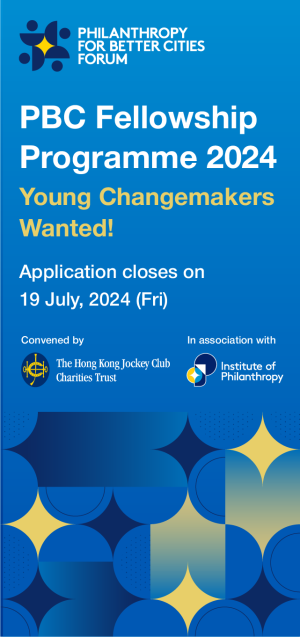The shimmering, futuristic skyscrapers of Abu Dhabi are a world apart from the humble villages I’ve visited in the tropical rainforests of Latin America, Central Africa and Southeast Asia.
Members of these remote and tree-covered communities rarely reach the air-conditioned conference rooms of the United Arab Emirates. And yet, it was here that these two worlds converged last month at the annual gathering of Asian philanthropy network, AVPN.
During our session at the conference, together with HE Razan Al Mubarak of IUCN, Kevin Currey of Ford Foundation and a video from Lord Zac Goldsmith, UK, we discussed how Indigenous people and local communities have long stewarded our forests, lands, and waters, protecting them from excessive exploitation. Deeply intertwined with their surroundings, Indigenous people live in harmony with landscapes and maintain the fragile balance of nature. Indigenous ways of life reduce emissions, halt forest loss and protect places brimming with life. And that’s why securing their land tenure – territorial and customary rights – is so crucial for our planet and future. Tenure Facility dedicates medium to large amounts of funding for this work.
Securing community land as a climate solution strategy is starting to resonate. At AVPN’s Climate Pathfinders event, I heard investors talking about the need to partner with local people to build bottom-up solutions. Investing in development must involve investment in place-based adaptation and resilience. Even if it doesn’t make money immediately, catalytic private finance, and government policy enablers need to come forward and align. And I thought; ‘wow’ – imagine if we counted the contributions of the world’s Indigenous, Afro-descendant and local communities – including their efforts to protect watersheds, restore and expand forests, and share intergenerational stories that protect keystone species and heirloom seeds.
At this event, I felt deep a resonance with the value of service, of giving in line with love and justice. I was deeply inspired by how the UAE host country referred to philanthropy as an act of service and love for communities and the planet. I listened to conversations on green energy transitions that underscored the importance of respecting land rights in a just and equitable manner.
How much of our love can be transformative? We must consider that only a fraction of the world’s annual climate finance (USD 270 million per year) goes to development issues. Moreover, a survey conducted by the Rainforest Foundation Norway found that Indigenous people receive only 1% of this funding, despite many living in forests and agroecological frontiers – at the frontlines of our climate crisis. Indigenous people are problem solvers, traditional knowledge holders, and volunteer firefighters — enduring ravaging wildfires in the Amazon and battling illegal loggers in the Congo Basin and tropical Asia. Their secure tenure rights help them continue this work and help us buy time to reverse our climate challenges.
And they aren’t the only ones exposed. Less than a week before the conference in the UAE, a record-breaking rainfall swamped the region, submerging streets and killing two dozen people. As a taxi driver recalled this in the drive to the event, I thought; ‘we’re all in this together’.
That is why philanthropy must step up to ensure recent advances are made permanent, so that the land rights of Indigenous and local communities’ are both recognised and respected.
This can be done in several ways – with funding that is focused, flexible, and accessible. But more often than not it must begin with trust. Donors need to actively listen to Indigenous people, appreciate their knowledge, understand their problems and be convinced of their potential. Without this, any financial support, however large and targeted, will have little lasting impact.
I’m convinced that we can do this together. It’ll take patience and effort. There will be missteps along the way. But changes are happening. Already hopes are high for next year’s UN Climate Summit COP30 in Brazil, where many Indigenous people from the Amazon and beyond will press for more inclusion and robust protection of Indigenous rights and consent.
As we prepare for these crucial moments, let us not forget to bridge the gap between the towers of modernity and the canopies of tradition. Because it is precisely at the intersection of these two worlds where hope emerges and our path towards a more just and sustainable future begins.
Nonette Royo is the executive director of the Tenure Facility since its founding in 2017. She has spent more than 30 years fighting for the tenure rights of Indigenous communities to allow them to strengthen their ability to preserve, protect and enjoy the benefits of their traditional lands and resources.





Comments (0)